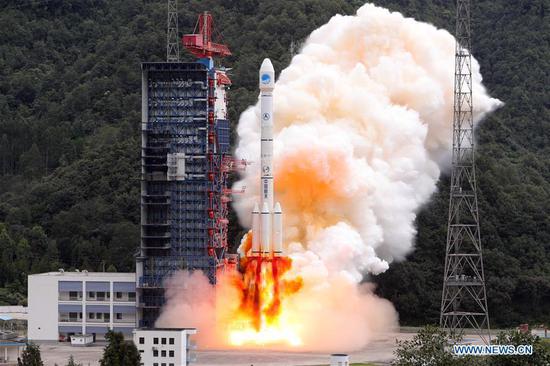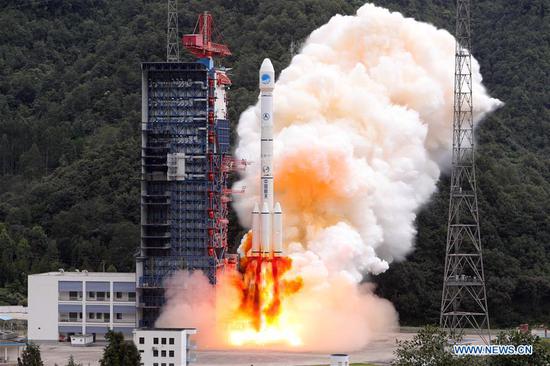
China sends twin BeiDou-3 navigation satellites into space on a Long March-3B carrier rocket from Xichang Satellite Launch Center in Xichang, southwest China's Sichuan Province, Oct. 15, 2018.
(ECNS) - China's BeiDou navigation system is increasingly employing homegrown components, said Ma Jiaqing, deputy director of the China Satellite Navigation Office.
On Monday, China successfully launched twin BeiDou-3 navigation satellites into space, the 39th and 40th in the system, on a Long March-3B carrier rocket from the Xichang Satellite Launch Center in Southwest China's Sichuan Province.
China plans to form the basic BeiDou-3 system capable of providing services to countries along the Belt and Road initiative route by the end of the year.
The BeiDou-3 system is expected to provide services globally by 2020 and become a comprehensive positioning, navigation and time service system by 2035, Ma said.
Ma also said that multiple measures have been explored to ensure that the system is built on the nation’s self-developed technologies, software products and equipment.
Key components in the BeiDou navigation system are domestically made, Ma said, noting the importance of independence and control over the technology.
The domestically manufactured BeiDou chips have been downsized to 28 nanometers from 0.35 micrometers in the past, the cheapest are priced at only six yuan ($0.87) each, and the performance of the China-made chips are as good as or better than similar products made in other countries, according to Ma.
BeiDou will keep abreast of the world’s new technological advancements and gradually use more homegrown technologies and solutions, said Ma.
Named after the Chinese term for the Big Dipper constellation, the BeiDou project was formally initiated in 1994. It began to serve China in 2000 and the Asia-Pacific region at the end of 2012.


















































